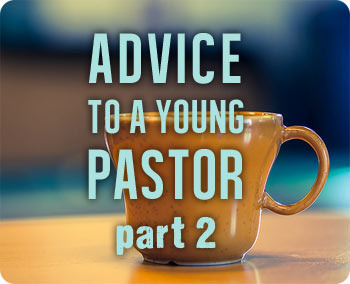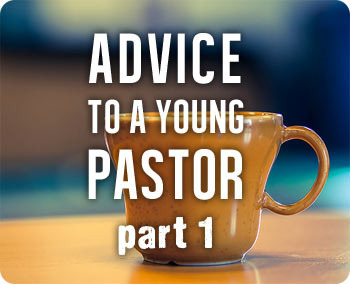Randy Alcorn's Blog, page 194
August 12, 2013
Advice for Parents of Teenagers
In this video and the following transcript, I share some thoughts:
I would say, be sure to listen to your kids. Treat them as human beings. They are human beings.
“Do unto others as you would have them do unto you.” How would you like your parents to have treated you when you were your children’s ages?
 Show respect to them and listen to them, and you’ll have a grounds for mentoring your teenagers. This is a huge responsibility of parenthood—mentoring your children and pouring yourselves into them. Part of that is to ask them questions and encourage them to ask you questions (and not be shocked at some of the questions they ask!). Even if you are shocked, don’t act shocked—because after all, the questions they’re asking you are right from their hearts and their lives. You don’t want to shut them down.
Show respect to them and listen to them, and you’ll have a grounds for mentoring your teenagers. This is a huge responsibility of parenthood—mentoring your children and pouring yourselves into them. Part of that is to ask them questions and encourage them to ask you questions (and not be shocked at some of the questions they ask!). Even if you are shocked, don’t act shocked—because after all, the questions they’re asking you are right from their hearts and their lives. You don’t want to shut them down.
Teach your children it’s okay to ask hard questions, like about the problem of evil and suffering. People all the time are talking about these problems and issues out in the world. Don’t have your kids wait until they get to a secular high school or off to college to hear the hard questions. Bring them up. Say, “Let’s talk about the fact that there’s a lot of evil and suffering in this world. Why do you think God allows all that? God could make that stuff not happen, right? He’s all powerful. Why does He allow these things to happen? Why does He bring some of these things into people’s lives?”
After being raised in a non-Christian home, I am convinced the Christian worldview has a greater explanatory power than any other worldview. (And everyone, by the way, has a worldview.) So encourage your kids to come to grips with a Christian worldview—so it’s not your worldview they’re just automatically accepting, until one day they’re challenged and reject it because they didn’t have any basis for their own worldview.
Instead, help them look at the explanatory power of the Christian worldview and what the Bible says. It really truly does make sense. Don’t discourage their questions. Encourage their questions, and then go read some good books yourself. Bring valuable insights to them to help them understand the Christian faith and hopefully to hang onto it and develop it as their own worldview.

Related Resources
Book: The Goodness of God
Blog: “Look-at-ers” and “See-through-ers”: Having Perspective in a Fallen World
Article: Parenting Teens: Leaving a Lasting Spiritual Heritage
photo credit: Ana Eugenio Photography via photopin cc
August 9, 2013
John Wesley on the Importance of Reading
 One of his biographers says that evangelist John Wesley "rode 250,000 miles, gave away 30,000 pounds...and preached more than 40,000 sermons.” (Edward T. Oakes, John Wesley: A Biography, First Things, 2004.)
One of his biographers says that evangelist John Wesley "rode 250,000 miles, gave away 30,000 pounds...and preached more than 40,000 sermons.” (Edward T. Oakes, John Wesley: A Biography, First Things, 2004.)
250,000 miles on horseback? That’s a staggering distance. It’s equivalent to circling the globe ten times…on a horse! (I’d advise against trying this even once, with the oceans and all.)
Often, Wesley had a book open in front of him as he rode. He loved to learn, and read books incessantly, which gave freshness to the sermons he preached about three times a day. Whether at a desk or on a horse, Wesley wrote this letter to a pastor, John Premboth, on August 17, 1760:
What has exceedingly hurt you in time past, nay, and I fear to this day, is want of reading.
I scarce ever knew a preacher read so little. And perhaps, by neglecting it, you have lost the taste for it. Hence your talent in preaching does not increase. It is just the same as it was seven years ago. It is lively, but not deep; there is little variety, there is no compass of thought. Reading only can supply this, with meditation and daily prayer. You wrong yourself greatly by omitting this. You can never be a deep preacher without it, any more than a thorough Christian.
O begin! Fix some part of every day for private exercises. You may acquire the taste which you have not: what is tedious at first, will afterwards be pleasant.
Whether you like it or no, read and pray daily. It is for your life; there is no other way; else you will be a trifler all your days, and a petty, superficial preacher. Do justice to your own soul; give it time and means to grow. Do not starve yourself any longer. Take up your cross and be a Christian altogether. Then will all children of God rejoice (not grieve) over you in particular.

Related Resources
Book: Money, Possessions and Eternity
Blog: Will there be books and reading on the New Earth?
Article: Wesley's Covenant Prayer
August 7, 2013
Advice for a Young Pastor, Part 2
In part two of this two part video interview, I sit down with Jason, a young pastor I just met, and we discuss some questions he has about ministry. (See also part one.)
Randy: Jason, you’re a youth pastor, married about a year, and you’re expecting a child in about a month. Congratulations! Do you have a question?
Jason: Yes. My question has to do with the area of church leadership. I love being in and serving in ministry. I wrestle with the idea of being prepared enough, getting the right experience, but also not spending my whole life waiting. Being bold and following 1 Timothy 4:12, and setting an example. What advice would you give me in the area of knowing when I should go for it, and knowing when to learn and sit under other leadership?
 Randy: Great question. The 1 Timothy 4 passage relates to not letting anyone look down on you because of your youthfulness. I have vivid memories of being a full-time pastor when I was 22 years old. Looking back at it, was there a lot I didn’t know? Oh yes! I mean, the world could be filled with what I didn’t know. Did I make a lot of mistakes? Yes. And before that I’d been a part-time youth pastor and made a lot of mistakes.
Randy: Great question. The 1 Timothy 4 passage relates to not letting anyone look down on you because of your youthfulness. I have vivid memories of being a full-time pastor when I was 22 years old. Looking back at it, was there a lot I didn’t know? Oh yes! I mean, the world could be filled with what I didn’t know. Did I make a lot of mistakes? Yes. And before that I’d been a part-time youth pastor and made a lot of mistakes.
But was I grateful for the opportunity! How do you learn and grow without the opportunity to make those mistakes? You’re 27. So you are five years older than I was.
I would say approach it with a humility that says, “Yes, I’m not always going to be right. Some of the things where I’m positive I’m right (and I’m not thinking so much of doctrine but in terms of strategy), are going to prove to be wrong. But then I don’t know what those are. I need to listen carefully to people. I need to be humble. I need to respect the ‘grey hairs’ that Scripture talks about—those who are older and wiser. But I also need to say, ‘You know what? God has gifted me. God has called me. And with all the mistakes I’m going to make, I want to be His servant. And I’d like the opportunity to serve.’”
Sometimes that opportunity to serve means doing a lot of hands-on, behind the scenes type of service, not just preaching all the time or whatever. So there’s humility but there’s also stepping forward to serve.
Jason: That makes sense. So with that in mind, what are some of the best experiences that you had that really developed you as a leader—in your character, your training? Like you said, you’re going to go for things, but you’re also going to fall on your face. How do you best prepare yourself for really taking that next step?
Randy: I think in terms of preparation, the most important thing is your own personal walk with God—time in His Word and time in prayer. Read great books, books that move you toward God and deepen your walk with Him. A. W. Tozer’s Knowledge of the Holy was extremely formative to me when I first read it at 19 or 20 years old. Knowing God by J. I. Packer came out when I was 21 years old and I read it as soon as it was released. It is a powerful book and had a profound influence on me. Read books about God—not just books about us, books about the church, books about youth ministry—but books that are really about God and walking with Him.
Then I would say what really helped me was simply being given the opportunity to succeed or fail. What that means is, how does a duck know that it has the spirit of swimming? It gets out on the water. You’ve got to be in the water before you discover whether you can swim or how to swim. What happens sometimes is that in the church we keep waiting for people to rise up to some profound great high level before we give them opportunity.
Years ago when I was a pastor, I would recruit people to be over youth groups and small groups and small groups within youth groups. Maybe they weren’t ready. But they became ready through having that experience.

Related Resources
Blog: Humility: Recognizing Who We Really Are
Article: The Leader's Character
photo credit: Stefán Freyr | Skyzography via photopin cc
August 5, 2013
Advice for a Young Pastor, Part 1
In part one of this two part video interview, I sit down with Jason, a young pastor I just met, and we discuss some questions he has about ministry.
Jason: This question is definitely related to young leaders in ministry. I know you were young when you helped start your church at 22. I’m about 27 right now. There are some moments when I feel very ready to go and excited and passionate. But there are some moments when it feels like I don’t want to just fall on my face in pursuing leadership and ministry. What are some of the things that helped you, in particular, succeed at such a young age pursuing church leadership?
 Randy: I think probably the key to everything was that I was surrounded by more mature people. When we started our church, we had a group of elders. It seems funny to say that I was an elder at 22. But I was surrounded by people who, at the time, I thought were quite old—in their forties. (Now that I’m 57, it doesn’t seem so old! But it did then.) Our oldest elders were in their fifties. We didn’t have anyone in their seventies or eighties.
Randy: I think probably the key to everything was that I was surrounded by more mature people. When we started our church, we had a group of elders. It seems funny to say that I was an elder at 22. But I was surrounded by people who, at the time, I thought were quite old—in their forties. (Now that I’m 57, it doesn’t seem so old! But it did then.) Our oldest elders were in their fifties. We didn’t have anyone in their seventies or eighties.
But those mature lay people had walked in life in places where I never had, and we would meet together to talk and pray. The oldest of our elders was Garland Gabbert. I would sit near or next to Garland whenever I could at elders’ meetings. I just wanted to soak in his wisdom. So, surround yourself with older, wiser people. Get counsel. Scripture says in an abundance of counselors, there is wisdom and victory.
Be willing to put yourself in risky situations (by that I don’t mean situations where you could fall into temptations), but rather risky ministry situations—where you’re taking a chance that God might just speak to you and through you. It’s a situation where you’re scared to death, but you’ve got to try this.
Jason: So when you’re at that young age, and you’re ministering to a church and filling the role of a pastor, how do you minister to people older than you? Or do you just say, “Hands off, nope, that’s for someone else, and I get everyone younger than me”? How do you find that balance?
Randy: Well, certainly you have delegated responsibilities with a youth group or whatever. But as far as other people in the church, whenever you’re given an opportunity to preach, I would seek that out (not press for it). But I would say to the church leadership, “If you’re willing to let me try, I’d like to. I’m not guaranteeing it will be a great sermon; I haven’t maybe preached to the congregation before. I’ve only done it a couple of times. But you had a first time, and at some point, I’d like to have a first time and learn from it. I’d like your feedback. Please meet with me afterwards and explain to me, ‘Here’s what I do that’s different.’”
I recently had someone mention to me that there was a young pastor in their church who had preached a message. They said, “You know, I’m not quite sure that’s his gift.” I said, “Well, what do you think all the older pastors, who you do think it is their gift, sounded like their first time? What did they bring to the congregation?” This man might have sounded way better than they sounded their first time, but they were given an opportunity.
When I took the opportunity to be stretched as a young man, one of the things I remember saying is, “Look. I don’t really know what I’m doing. I haven’t had much experience in this, maybe none at all. All I know is that God is God. This is His work. I’m going to do my best. Please bear with me.”
The moment you do that, you have people out there rooting for you. You have people who are on your side, saying, “Ah, he’s recognizing this.” This shouldn’t be false humility—you need to mean it when you say it, of course. But then they’re praying for you and they’re also more understanding because they’ll think, “He was certainly right. He was going to make some mistakes, and he did. But he said a lot of good things. And I’m going to encourage him with the good things.”
This is what people need. I’ve seen a lot of young pastors get really discouraged because of the negative feedback they’ve gotten, but really encouraged, as I was, by positive feedback. When people said, “You know, Randy, when you said this, God spoke to me through that”, I would think, “Wow! God spoke through me?” That encouraged me.

Related Resources
Book: The Resolution for Men
Blog: How do you enjoy your family and the ministry?
Article: A. W. Tozer on Pastoral Ministry
photo credit: Stefán Freyr | Skyzography via photopin cc
August 2, 2013
Can parents go overboard when protecting their children?
In this video interview with EPM staff member Julia Stager, we discuss the question: It’s the parent’s job to protect their children, but can they go overboard?
Randy: I think the answer is yes. But I’m all for reasonable protection. Sometimes Nanci and I joke when we put our grandchildren in their car seats with all the straps. We laugh that we’re putting them in the space shuttle and locking them in. Then we think about when we were kids—if there was a quick turn, we just rolled! That’s how it was. The good old days weren’t that good, because we weren’t that safe. I used to ride in the back of pickup trucks with my friends all the time. You never think of doing that today.
 So, yes, let’s take reasonable precautions with our kids. But sometimes people will say, “Well, these parents decided to homeschool or send their kids to a private Christian school and these other parents just go ahead and send them to public school!” Then others will say, “I think all of these people who don’t choose to put their kids in public school are just being overly protective. They’re raising their children in a greenhouse. We’ve got to send our kids out to be missionaries in the world in order to be an influence on our culture.”
So, yes, let’s take reasonable precautions with our kids. But sometimes people will say, “Well, these parents decided to homeschool or send their kids to a private Christian school and these other parents just go ahead and send them to public school!” Then others will say, “I think all of these people who don’t choose to put their kids in public school are just being overly protective. They’re raising their children in a greenhouse. We’ve got to send our kids out to be missionaries in the world in order to be an influence on our culture.”
The problem with this is, first of all, we don’t send out missionaries unless those missionaries are prepared. That means an eight-year-old may not be equipped to be a missionary. The other problem is with the greenhouse comparison. The whole point of being in a greenhouse is not so that you won’t be ready for the world, but to make you ready for the world. Those plants that are raised in the greenhouse are then set outside where the hope is they will thrive. If we raise our children in a way that’s protective in the right ways, but not overly protective, we can be more confident they can go out into the world and make a difference for Christ.
Julia: I think it’s important to also assess children individually. Maybe in a family of three kids, one child at the age of six or seven would be ready to step into public school, if that’s where the parents wanted to send the child. But another kid wouldn’t be ready until much later or possibly public school would never be a good fit for him/her as an individual.
Randy: Exactly. I know parents who have a number of children and they’ve chosen homeschooling for one or two of the kids, private school for another, and public school for another, and even different schooling options at different times. It’s up to the parent, but certainly the parent needs to prayerfully consider this. Married couples need to talk it over and pray and decide what is best, as you say, for each individual child.

Related Resources
Book: Courageous
Blog: Fiction Feeds Souls (Including Children's)
Article: Our Children's Education
Photo credit: Grunow via. scx.hu
July 31, 2013
The Heaven Book, Reader Responses, and Longing for Our Eternal Home
Over the years, we’ve received thousands of letters from readers telling us how Randy’s Heaven book has affected their lives. Not only are these stories encouraging to Randy, but they’re also an encouragement to our staff as we continue to share Randy’s writings and teachings about the eternity that awaits us because of what Christ has done on our behalf.
Randy writes, “The response to the book Heaven has been amazing. Last I heard it had sold close to 850,000 copies since its release. Big books with a lot of Bible and theology aren’t supposed to sell like that. But I tried to write it in a way that’s both true to Scripture and stimulates the imagination. I’m very grateful and humbled that God seems to be using Heaven to get people excited about the place being built for us by the Carpenter from Nazareth.”
A few weeks ago we received this email from a reader:
My 80-year-old mother went to be with the Lord on April 9. These have been a very difficult two months for my family, especially for my father, also 80, who himself just came to saving faith this past Christmas. I made the three hour trip to Mom’s hospital many times. The day before she died, I arrived to hear from her doctors that she had “between two and twenty fours” left. We had one last good conversation, and she fell asleep. My father and I sat with her all day and night. Mom’s vital signs had been steady all night long, so I decided to go to their house, take a shower, change clothes and return to the hospital.
The rural area where they live is hilly, so I had the radio on “scan” permanently, looking for some station that would come in. Out of nowhere a Focus on the Family program came on, and I recognized your voice. It was a rebroadcast about your book Heaven. You spelled out how 1 Thessalonians 4 tells us believers will be physically reunited with our departed believing loved ones, emphasizing the word “together”. You stressed this passage is specifically designed to comfort Christians facing the very circumstances I then found so trying. I immediately told my father these things when I reached her room, and he burst into tears: “That’s just what I wanted to know, if I would never be able to hold her or hug her again.” About an hour later she passed away. My wife told me later she had heard the very same radio program that morning, on her way to work. During the memorial service the preacher (without input from me) spoke on Heaven and the great reunion with loved ones from 1 Thessalonians 4, and emphasizing the word “together”. And I had independently already printed this same text on memorial cards passed out to the people there.
Randy, for myself, and on behalf of my family, especially Dad, I want to thank you so much for your book Heaven and for your message of encouragement and comfort for wounded people like us. Thank you for being receptive and used of God. In my work as a book seller I have sold thousands of copies of Heaven, including one copy I gave Dad at the service, and one copy for me. Thank you for sweetening our memories and helping to soothe our hearts during this time, and during the Celebration of Life service for my dear Mom. —S.G.
Has Randy’s Heaven book encouraged you to long for your eternal dwelling place, or helped you in the wake of a loved one’s death? We’d love to hear from you. Share your story in a comment below.
Looking forward to the world He has made,
Stephanie Anderson
Eternal Perspective Ministries
Related Resources
Book: Heaven
Blog: Six Eternal Truths to Remember Each Day
Video: Heaven: A Deeper Country
July 29, 2013
Is love God’s defining attribute?
In this video interview with EPM staff member Julia Stager, we discuss the question: Would you say love is God’s defining attribute?
Randy: Certainly love is a very important attribute of God. God is love, we’re told in 1 John 4:16, so in some senses it is a defining quality of God. However, this does not minimize His other qualities, and that’s the problem: when you start saying (as I’ve heard people say) we must interpret all of God’s attributes in light of His love.
In Isaiah 6:3 what are the angels of God who are in His presence calling out day and night? They are not saying, “Love, love, love is the Lord God Almighty,” but “Holy, holy, holy is the Lord God Almighty.”
 Now they could cry out, “love.” I’m not minimizing love at all. I’m all for love. I’m all for God’s love! It’s obviously very important. But that’s not His only attribute.
Now they could cry out, “love.” I’m not minimizing love at all. I’m all for love. I’m all for God’s love! It’s obviously very important. But that’s not His only attribute.
We must understand that we can’t and shouldn’t define God’s other attributes in such a way as to fit our definition of love. For instance, often we think, “Love means that you approve of people and you’re never unhappy or dissatisfied with them. That’s what it means to love someone. Therefore we must make God into that, because He says He is love.”
God has His definition of love, which is shown in the whole Bible, and it’s in all of His attributes.
Julia: I think it’s dangerous to take just one attribute, like you were saying, and use that to define God. It’s clear throughout Scripture that there are so many attributes. There’s His love and His holiness, and what those attributes have compelled Him to do, such as sacrifice His own Son. A lot of times love can cause pain.
Randy: Exactly. If you truly love someone, you’re looking out for their best interests. However, as you do that, you may be required to do what parents are often required to do: the thing which makes their child unhappy. In other words, the child wants to eat whatever the child wants to eat. He wants to run out on the freeway if he wants to run out on the freeway. He wants to jump into the water, even though he doesn’t know how to swim.
There are many things that children may want their parents to let them do, like watch movie after movie, play game after game, not do their homework, and not got to sleep at a certain time. But part of the parents’ job of lovingly caring for their children is to do things their children do not like. This is totally opposite of the modern definition of love, which says, if you do something to me or say something to me that I don’t like, then I can conclude you’re not being loving.
Well, no. Actually Scripture says we are to speak the truth in love (Ephesians 4:15). Love is not always comfortable, but love is always right. That’s true for us, and obviously most fundamentally it’s true for God.

Related Resources
Book: If God Is Good
Blog: Mark Galli’s God Wins: A Response to Rob Bell’s Love Wins
Article: If you were the author, how would you have written the story?
Photo credit: asphalt_ph via sxc.hu
July 26, 2013
The Duggar Family and Life United
 I’ve shared before in a blog my appreciation for the Duggar family, featured on the TLC reality show 19 Kids and Counting. I met Jim Bob and Michelle Duggar in 2011 at ICRS (the annual Christian bookseller’s convention). They struck me as wonderful, Christ-loving people. Our brief conversation was a delight.
I’ve shared before in a blog my appreciation for the Duggar family, featured on the TLC reality show 19 Kids and Counting. I met Jim Bob and Michelle Duggar in 2011 at ICRS (the annual Christian bookseller’s convention). They struck me as wonderful, Christ-loving people. Our brief conversation was a delight.
One of their recent projects is being part of Life United (www.lifeunited.org), a prolife website dedicated to educating people with the reality of abortion in our generation, and encouraging them to do something about it. Lifenews explains how the family’s desire to start the project began:
Michelle recalls, “Our family visited the Holocaust Museum in Washington, DC. The designers of the museum did an incredible job telling the tragic story of over 6 million Jews who were brutally executed. The purpose of the museum is to educate others on what happened, so that hopefully, something like this will never happen again! A couple of weeks after we went to the Holocaust Museum it dawned on us that there is a holocaust taking place right here in America!”
The holocaust she referenced is the epidemic of abortion in America. After that trip the Duggars began to pray about what they could do to help end abortion. Their first call was to Dan Pennell, CEO of WMtek, a Fort Pierce, FL based web development company, who immediately caught the vision. Working with Jim Bob Duggar and Mathew Staver of Liberty Counsel, Dan formed the powerful coalition of pro-life groups that has become LifeUnited.
I encourage you to check out the resources of www.lifeunited.org and share them with your family, friends, and church.

Related Resources
Blog: The Duggar Family
Article: What is the most impactful thing a Christian can do to break the cycle of abortion?
Book: Why ProLife?
July 24, 2013
Advice for Engaged Couples Preparing for Marriage
In this video I share some advice for couples who are engaged:
Certainly, any engaged couple should talk to older and wiser people who have been married a long time. I think that is just huge. If you only talk to other people who are in the same season of life as you are, who maybe have experienced dating but haven’t experienced marriage or at least not a very long marriage yet, you’re going to get different perspectives. I think people who have been married for years have very valuable insights. So by all means, talk to other godly people.
 Read good books. There are a lot of great books on marriage. Listen to Focus on the Family’s radio program and Family Life Today. These are programs that have a lot of marriage and family-related insights.
Read good books. There are a lot of great books on marriage. Listen to Focus on the Family’s radio program and Family Life Today. These are programs that have a lot of marriage and family-related insights.
Go to one of the Weekends to Remember from Family Life Ministries, which they have for engaged couples as well as for married couples. They can help you be prepared for marriage.
I would really encourage people to ask honest questions of each other. Get to know each other now. There are people who have been married for a few months and one of the things they say in all honesty is, “I had no idea my spouse thought that. I had no idea they believed that. I’m finding this out now for the first time.” Talk these things through now. Really work it through, and pray it through.
Marriage is going to bring a lot of surprises. But don’t make it bring more surprises than it needs to. Talk it out. Think it through. Pray about it. Get wise counsel from people in advance.

Related Resources
Blog: Pursuing Sexual Purity in Your Marriage
Article: Cultivating Your Marriage
Book: Courageous
Photo credit: theswedish via sxc.hu
July 22, 2013
Do you see hope or destruction for the USA?
Someone asked me this question: In light of today’s world events, do you see hope or destruction for the United States?
In the following video and transcript, I share some thoughts:
Well, it sounds like there are only two options, hope and destruction. Let me say this: will the world come to an end someday? Yes. The world as it presently is, we’re told in 2 Peter 3, will face a final judgment. The Earth will burn with fire. Then there’s going to be a New Heaven and a New Earth. So the old Earth will be done and there will be a New Earth that God creates.
So will this Earth as it is now, under the curse, come to an end? Yes. Even if the world doesn’t come to an end, do nations sometimes come to an end? Absolutely. History is full of nations that were once prominent that don’t exist today or that exist in a much less significant way.
 Could that happen to the United States of America? Absolutely, it could. Is there reason to believe that it will? Well, a lot of people have talked about the fiscal cliff, the national debt, the deficit, the failure of Congress (both parties) term after term to balance the budget, the possibility of bankruptcy, and things happening in the United States that are parallel to things that have happened in Greece and other countries. Could those things happen here? Yes, they could. Could those things happen without it being the end of the world, and even the end of the United States? Yes, but it could well be the end of prosperity in the United States.
Could that happen to the United States of America? Absolutely, it could. Is there reason to believe that it will? Well, a lot of people have talked about the fiscal cliff, the national debt, the deficit, the failure of Congress (both parties) term after term to balance the budget, the possibility of bankruptcy, and things happening in the United States that are parallel to things that have happened in Greece and other countries. Could those things happen here? Yes, they could. Could those things happen without it being the end of the world, and even the end of the United States? Yes, but it could well be the end of prosperity in the United States.
One of the things I would say is that people in every time have experienced great turmoil. We should not conclude, “Well, Christ is obviously to return in our lifetime. Not only in our lifetime, He’s also going to return within the next five or six years. How could it go on any longer than that?”
The answer is, it’s been going on for over 2,000 years. Christ could have returned at any time. He’s chosen not to at this point. I certainly would not bank on the idea that Christ must return within my lifetime, even though many Christians are emphatically saying that’s the case.
However, in reference to do you have hope?, I would say I have hope, absolutely. But my hope is not in the United States of America. My hope is in Jesus Christ. People of all places and all times—in the darkest times of the Civil War, World War I, World War II and other global conflicts—who have known Christ have had their hope centered in Him.
Christ is the object of our faith. I am patriotic, but sometimes I get concerned about patriotic Americans who have everything invested in their citizenship in this country. To them, this country must continue and remain great in order for them to have a sense of security. We can of course help our country and make right and moral choices. But also, let’s realize what Philippians 3:20 says—our citizenship is not on Earth. Our citizenship is in Heaven. We are citizens of another country.
In 2 Corinthians 5:20 we are called ambassadors for Christ. Our job is to represent Him. He is our reference point. So ultimately I have great hope, because my hope is in Someone who is certain, unlike any country. That’s Jesus Christ, who is LORD.

Related Resources
Blog: You Say “This Is History’s Darkest Hour”? G. Campbell Morgan Says, “Oh, Be Quiet!”
Article: Dual Citizenship
Book: 50 Days of Heaven







